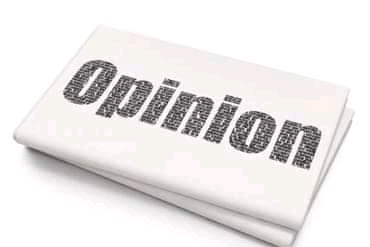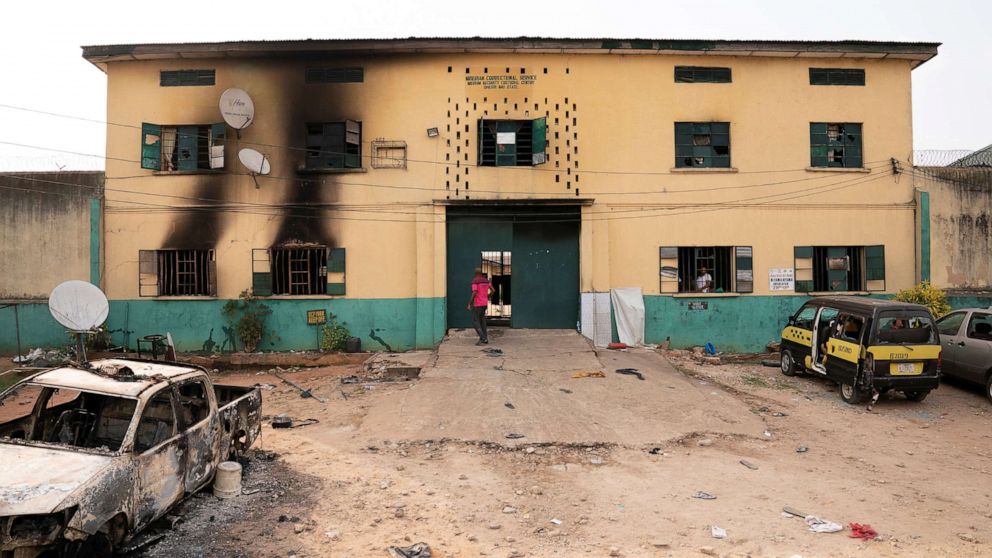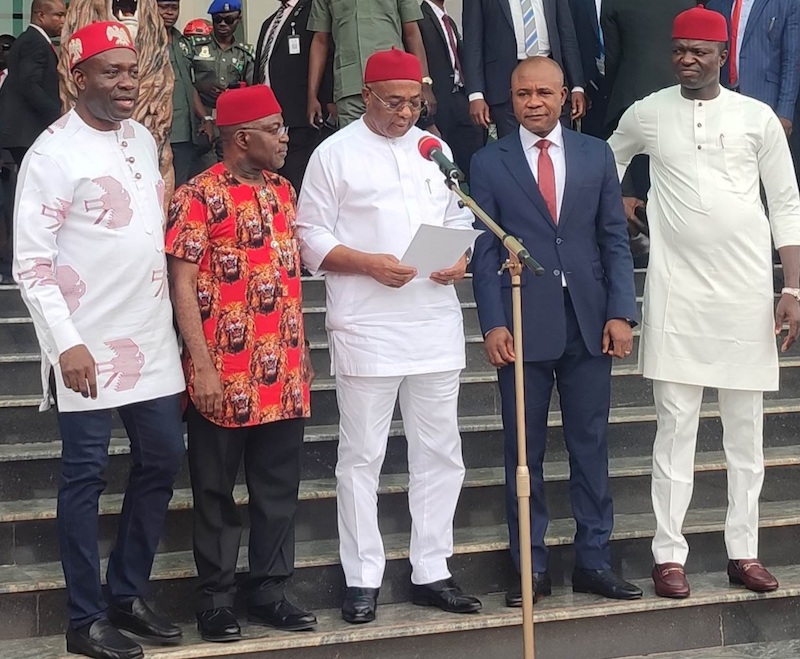
By Chiedu Uche Okoye
Have the issues of ethnicity and religion not polarized Nigeria? Consequently, Nigeria is a disunited country. It should be noted that Nigeria’s problem of disunity accounted chiefly for the bloody January 15, 1966 coup and the counter-coup of July 1966, which threw the country into a fratricidal civil war.
Before the eruption of the Nigeria-Biafra civil war, Isaac Adaka Boro had declared the Niger-Delta Republic in 1963, which was short-lived. And we still remember vividly that the Northern people wanted out of Nigeria in 1953, which they enunciated and listed in their nine-point programme.
Till now, inter-communal clashes, bloody sectarian violence, Boko Haram insurgency, and the herders-farmers clashes have weakened Nigeria’s unity and put her at an equidistance between war and peace.
In fact, without mincing words, Nigeria is at the precipice of disintegration given the fact that rabble-rousers, ethnic chauvinists and champions, and religious bigots are mouthing inciting, divisive and incendiary rhetoric.
Nnamdi Kanu, a fugitive from the law, and leader of the proscribed secessionist group, IPOB, has shown his preference for having the independent state of Biafra over ceding the presidential seat to the South East geopolitical zone in 2023. And the Federal Government is poised to crush any secessionist move from any part of the country.
So, now, nobody can gainsay the fact that Nigeria’s problem of disunity has been impeding our collective efforts to achieve rapid economic and technological advancement. However, our ethnic and religious squabbles predate Nigeria’s attainment of political freedom in 1960.
For example, then, in the First Republic, the major political parties, namely: Action group, AG; National Council of Nigeria and Cameroons, NCNC; and the Northern Peoples Congress, NPC, were formed along ethnic and religious lines.
The egregious doings of the founders and leaders of those political parties deepened our ethnic and religious fault lines instead of fostering peace and unity in Nigeria.
In order to curb our problem of disunity, allay the fears of the minority ethnic groups, who felt that they were being dominated, and bring the government near to the people at the grassroots, we adopted the federal system of government.
But Nigeria’s practice of federalism is a grotesque travesty and caricature of true federalism. Our country is a federal state in name; and, not so in practice. If anything, it has a federal-unitarist structure while pretending to be practising federalism.
A densely populated country, which has large land mass, Nigeria has a police force that is centrally-controlled. Yet, police officers policing of an area presupposes that they have deep knowledge of the culture and terrain of the towns in which they operate.
The agitation for the creation of state police has not seen the light of the day. More so, are the issues of resource control and others determined by the fine principles of federalism?
It should be noted that Nigeria is in this precarious and dire condition because it has been led over the years by leaders-both military and political-who possess no probity, vision, political ideologies and fealty.
And they profited immensely from our dysfunctional systems of doing things, being morally-bankrupt and corrupt political leaders. Their profligate, visionless and directionless leadership of Nigeria caused the ruination of our economy and our technological stagnation.
Besides Nigeria’s intractable problem of disunity is the issue of corruption which has bedeviled our dear country for a long time. The January 15, 1966 coup plotters cited corruption as one of their reasons for toppling the government of Alhaji Tafawa Balewa.
Fifty four years after the execution of that bloody coup, corruption is still the cankerworm destroying the fabrics of our society, and hindering our national development.
This current APC-led government coasted to victory on the coat tails of its campaign mantra of change in 2015, and its vow to stamp out corruption in Nigeria.
But has it effectively tackled the monster and menace of corruption in Nigeria? The answer is a categorical NO! It is sad that corruption, like cancer, has become malignant in Nigeria with its dire consequences.
Now, the EFCC and ICPC, which are saddled with the responsibilities of tackling financial crimes in Nigeria, are enmeshed in controversies. Is the former EFCC boss, Mr. Magu, not standing trial for corruption?
A country that is weakened by the corrupt deeds of its leaders at different governmental strata cannot leapfrog to the acme of technological and economical development.
The wobbling, fumbling APC- led government, which cannot combat financial crimes in Nigeria, has failed abysmally in diverse areas to re-make Nigeria and take it to a great economic and technological height.
That is why millions of Nigerians have become disillusioned and disenchanted with this government.
They are probably looking forward to voting out this APC –led government in the next presidential election.
Curiously, yet interestingly, the calls for the emergence of Nigeria’s next president from the South East geopolitical zone have become strident. However, on the grounds of fair play, political equity and egalitarianism, the South East should produce the next president of Nigeria.
I urge President Muhammad Buhari to acquiesce to the calls for the zoning of the 2023 presidential seat to the South East geopolitical zone. President Buhari has executed more deeds that polarized Nigeria than ones that fostered our unity.
So, it is necessary for him to turn a new leaf now. If he endorses rotational presidency, incorporates it into our Constitution, and works for the ceding of the APC’s presidential ticket to the South East, Nigeria will be set on the path of national unity and development.
Again, at this political juncture in our chequered national life, the continued existence of Nigeria as one country is dependent on the restructuring of Nigeria, and our leaders’ practising of true federalism. Restructuring Nigeria will tackle and solve the issues of Nigeria’s internal contradictions and marginalisation.
More so, no country that is being ravaged by corruption can become great. Besides using agencies like EFCC and ICPC to fight corruption in Nigeria, effecting moral regeneration among Nigerians has become an urgent desideratum.
A person with probity, positive morality code and active restrictive mechanism cannot contemplate carrying out evil deeds, not to talk of him or her executing those deeds.
Okoye, a poet, wrote from Uruowulu-Obosi, Anambra State


